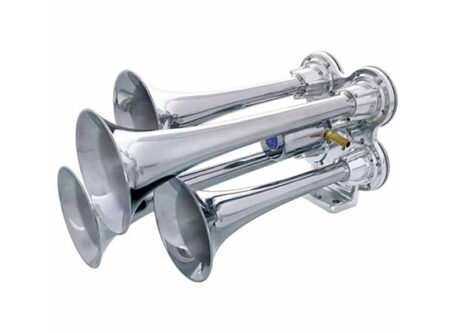Autonomous trucks restriction introduced in multiple statehouses
An increasing number of states are pursuing legislation to slow the push for autonomous trucks on public roadways.
A year ago, California state lawmakers sent the governor a bill to prohibit autonomous vehicle operation with a gross vehicle weight of at least 10,001 pounds for testing purposes, transporting goods or transporting passengers without a “human safety operator physically present” in the vehicle.
Gov. Gavin Newsom vetoed the bill. He said it was “unnecessary” for the regulation and oversight of heavy-duty autonomous vehicle technology in the state. In his veto message, he highlighted a 2012 state law that provides the DMV with authority to regulate the testing and deployment of autonomous vehicles on state roadways.
“Existing law provides sufficient authority to create the appropriate regulatory framework,” Newsom wrote.
Elsewhere, state lawmakers continue to pursue enacting rules that would put up a stop sign for use of the technology in large trucks traversing state roadways.
Florida
Pursuit in the Florida Senate calls for establishing rules on the operation of autonomous trucks on roadways.
Sponsored by Sen. Victor Torres, D-Orlando, the bill would require that a licensed human operator be physically present in a fully autonomous vehicle with a gross vehicle weight of at least 10,000 pounds. The rule would apply when the vehicle is operating on a public road in the state to transport goods or passengers.
SB1580 awaits consideration in multiple Senate committees.
Indiana
In Indiana, multiple bills address the use of autonomous trucks.
Currently, there is no rule in place that covers whether a human operator is required to be present in automated vehicle platoons.
Sen. Jim Tomes, R-Wadesville, and Rep. Cindy Ledbetter, R-Newburgh, have introduced legislation to expand statute to specify that a person may not operate an autonomous tractor-trailer on a highway to transport passengers or goods unless a human operator is physically present in the affected vehicle.
Operators also must meet all state and federal qualifications to operate a vehicle and an automated vehicle.
Tomes said with new technology on the horizon and more self-driving vehicles being used on roadways, it is important Indiana laws reflect these changes.
“Driverless vehicles, especially large trucks, could pose a danger on our public roads if not monitored properly,” Tomes said in prepared remarks.
Both bills, HB1022 and SB57, await consideration in their respective chamber’s transportation committee.
Kentucky
Across the state line in Kentucky, a renewed pursuit would amend the state’s requirement for truck platooning.
The Bluegrass State authorizes truck platooning. A human driver is required to be behind the wheel of a trailing platoon vehicle.
In 2023, Gov. Andy Beshear vetoed legislation to authorize only the lead vehicle in the platoon to have a human driver behind the wheel. A requirement was included that trailing vehicles be fully engaged.
Beshear cited safety concerns for his action. In his veto message, the governor said the legislation “is ambiguous and broad, and does not provide enough specifics, including about how it can be implemented, monitored, and enforced.”
This year’s version, HB7, is in the House Economic Development and Workforce Investment Committee.
New York
Two New York bills cover the use of autonomous trucks.
Current statute has no requirements for large vehicles to have a human in the cab capable of taking control of the vehicle in case of emergency.
One bill from Sen. Pete Harckham, D-Peekskill, would require operators to accompany trucks with autonomous operating technology while traveling the state’s roadways. The rule would apply to autonomous vehicles weighing more than 10,000 pounds.
Harckham said the importance of the trucking industry requires that state lawmakers be proactive and vigilant about public safety and job security when it comes to technological innovations like autonomous operating vehicles.
He added that his bill also would provide job security for more than 270,000 New Yorkers – one out of every 27 jobs in the state.
“The trucking industry is the backbone to middle-class social mobility, but unfortunately these good-paying jobs are under attack.”
His bill, S7758, is in the Senate Transportation Committee. The Assembly version, A8621, is in the Assembly Transportation Committee.
The trucking industry is a backbone to middle-class social mobility, but unfortunately these jobs are under attack. That’s why I introduced legislation requiring operators to accompany self-driving trucks while traveling NY’s roadways.https://t.co/lNLlTlymIh
— Senator Pete Harckham (@SenatorHarckham) January 12, 2024
Support and concern voiced on autonomous trucks
Advocates for truck platooning technology contend it saves fuel due to reduced aerodynamic drag, lessens traffic congestion and improves highway safety.
Critics question how automated vehicles and traditional vehicles will interact on roadways. Others doubt whether widespread use of the technology is realistic.
The Owner-Operator Independent Drivers Association recognizes that the rapid development of autonomous technology has a lot of potential. However, OOIDA points out the technology poses challenges as it relates to commercial vehicles and highway safety. LL









